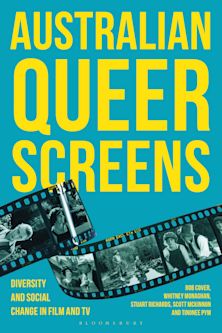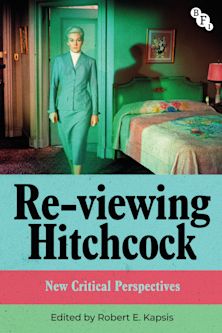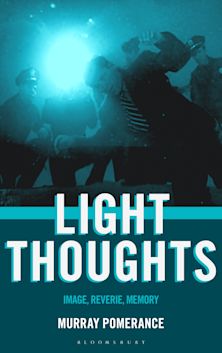The Avenging-Woman On-Screen
Female Empowerment and Feminist Possibilities
The Avenging-Woman On-Screen
Female Empowerment and Feminist Possibilities
This product is usually dispatched within 1 week
- Delivery and returns info
-
Free CA delivery on orders $40 or over
Description
In The Avenging-Woman On-Screen: Female Empowerment and Feminist Possibilities, Lara C. Stache and Rachel D. Davidson demonstrate how the on-screen character of the avenging-woman offers a complex construction of femininity that serves as a representation of cultural conversations about female empowerment, female agency, and feminism. This character is both woman and hero, typically both physically appealing and physical aggressive—a dichotomy that goes against traditional gendered norms of femininity. Television and film narratives produced since 2010, the authors posit, offer an opportunity to reflect on and consider the evolution of cultural ideologies about women and power, given the significant cultural shifts in Hollywood that occurred amid the #MeToo explosion and post–Harvey Weinstein revelations. Stache and Davidson argue that depictions of the avenging-woman utilize a feminist language of empowerment that suggests the potential for a subversive message against the patriarchy while also recognizing that an alternative reading of some representations presents, at times, a hegemonic construction of empowerment that ultimately cautions against subversion within patriarchal systems. The authors question how these representations may limit social change or, in some cases, represent particularly progressive rhetorics about women and power. Scholars of communication, media studies, film and television studies, and women’s studies will find this book of particular interest.
Table of Contents
Introduction: The Avenging-Woman and Feminism
Chapter 1: The Visualization of Victimization: The Avenging-Woman and Female Violence
Chapter 2: Homosocial & Heterosocial Friendships: The Avenging-Woman as Man's Best Friend
Chapter 3: Bodysuit, Lipstick, Taser: The Avenging-Woman, Choice, and Sex-Positivity
Chapter 4: Technology, Cyborgs, & Power: The Avenging-Woman as Machine
Chapter 5: #AvengingWomanSoWhite: Race, Class, and the Right to Justice
Chapter 6: “I wasn't the only dame in Gotham looking for emancipation”: Birds of Prey as a Reluctant Feminist Model of Female Empowerment
Chapter 7: Promising Young Woman: A Promising Feminist Narrative
Chapter 8: “Who takes their bright pink sorority backpack to vigilante target practice?”: Sweet/Vicious as a Feminist Fantasy for a Millenial Generation
Conclusion
Appendix
References
About the Authors
Product details
| Published | Oct 10 2023 |
|---|---|
| Format | Hardback |
| Edition | 1st |
| Extent | 206 |
| ISBN | 9781666915556 |
| Imprint | Lexington Books |
| Dimensions | 240 x 160 mm |
| Publisher | Bloomsbury Publishing |
Reviews

ONLINE RESOURCES
Bloomsbury Collections
This book is available on Bloomsbury Collections where your library has access.



































